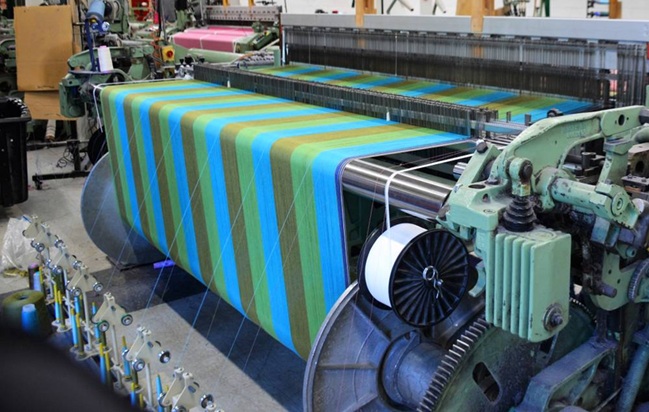Prelims: (Textile Sector + CA)
Mains: (GS 3 – Economy) |
Why in the News ?
The Union Government has approved the Textiles Focused Research, Assessment, Monitoring, Planning and Start-up (Tex-RAMPS) Scheme aimed at modernising India’s textile sector through innovation, data systems, and start-up support.

Textile Sector: A Key Driver of India’s Economy
- One of India’s oldest and most influential industries with deep cultural roots.
- Contributes over 2% to GDP, 11% to industrial output, and 13% of export earnings.
- Provides employment to more than 45 million people—India’s second-largest employer after agriculture.
- The sector benefits from a fully integrated value chain from fibre to finished product.
- India is a global leader in cotton, jute, silk, polyester, technical textiles, home furnishings, and garments.
Challenges Facing the Textile Sector
- Slow adoption of advanced technologies
- Weak R&D infrastructure
- Lack of an integrated data and analytics system
- Fragmented supply chains
- Competition from China, Vietnam, and Bangladesh, which employ high-tech solutions
News Summary
The government has cleared the Tex-RAMPS Scheme with a total outlay of ₹305 crore, to be implemented from 2025-26 to 2030-31.
The initiative seeks to:
- Boost textile research & innovation,
- Strengthen data-driven governance,
- Enhance global competitiveness,
- Improve quality and productivity across the textile value chain.
Aims and Vision of Tex-RAMPS
Tex-RAMPS is designed to correct long-standing structural gaps and prepare India’s textile industry for the future global market.
The scheme intends to:
- Build a national ecosystem for textile innovation
- Promote evidence-based policymaking through strong data systems
- Support sustainability and circular economy strategies
- Encourage high-value start-ups
- Strengthen collaboration between States, academia, industry, and government
Key Components of the Tex-RAMPS Scheme
1. Research & Innovation Development
Focus areas include:
- Smart textiles
- Sustainability & circularity
- Process optimisation
- Frontier technologies
These efforts will deepen India’s integration into high-value global textile chains.
2. Data, Analytics & Diagnostic Systems
- Creation of a real-time nationwide data ecosystem
- Mapping of employment, supply chains, and productivity
- Providing standardised analytics for national and State-level planning
- Enabling evidence-based decision-making
3. Integrated Textiles Statistical System (ITSS)
A key component of the scheme, ITSS will offer:
- Continuous monitoring
- Centralised diagnostics
- Strategic planning capabilities
It will assist State governments and industry associations in aligning with national goals.
4. Capacity Development & Knowledge Ecosystem
Initiatives include:
- Strengthening State planning units
- Sharing best practices across clusters
- Conducting workshops, training, and skill-building sessions
- Creating a strong quality and compliance culture
5. Start-up & Innovation Support
Tex-RAMPS promotes entrepreneurship via:
- Incubators and innovation hubs
- Hackathons and industry–academia collaborations
- Support for early-stage funding
- Development of start-ups in technical textiles, smart fabrics, and sustainable materials
Expected Outcomes of the Tex-RAMPS Scheme
The scheme is projected to deliver:
- Greater global competitiveness of India’s textile and apparel industries
- A robust innovation and research ecosystem
- Improved quality, productivity, and supply chain resilience
- Better, data-driven policy frameworks
- Higher employment and skill development
- Stronger collaboration across States, industry, and academia
Industry leaders believe Tex-RAMPS will “reinforce India’s innovation base, nurture high-potential start-ups, and elevate quality standards across the textile value chain.”
FAQs
1. What is the total outlay of the Tex-RAMPS Scheme ?
₹305 crore for the period 2025–26 to 2030–31.
2. What are the key focus areas of Tex-RAMPS ?
Research, innovation, data systems, capacity development, and start-up promotion.
3. What is ITSS under Tex-RAMPS ?
The Integrated Textiles Statistical System, a realtime monitoring and analytics platform.
4. Does the scheme support start-ups ?
Yes, through incubators, hackathons, and academia–industry collaboration.
5. What outcomes are expected ?
Improved competitiveness, better policymaking, stronger innovation ecosystems, and enhanced industry collaboration.
|



